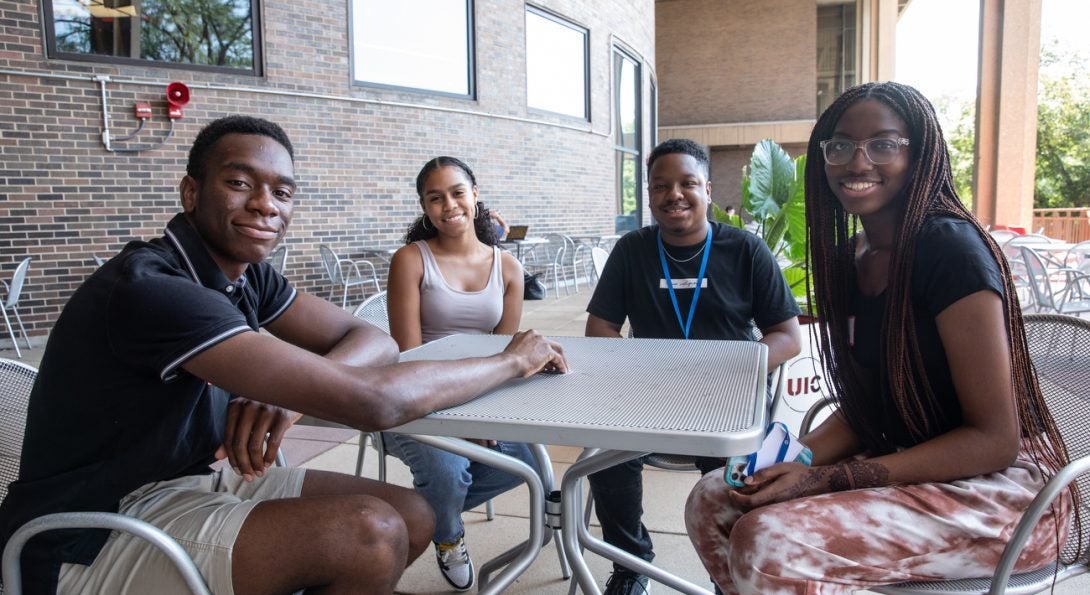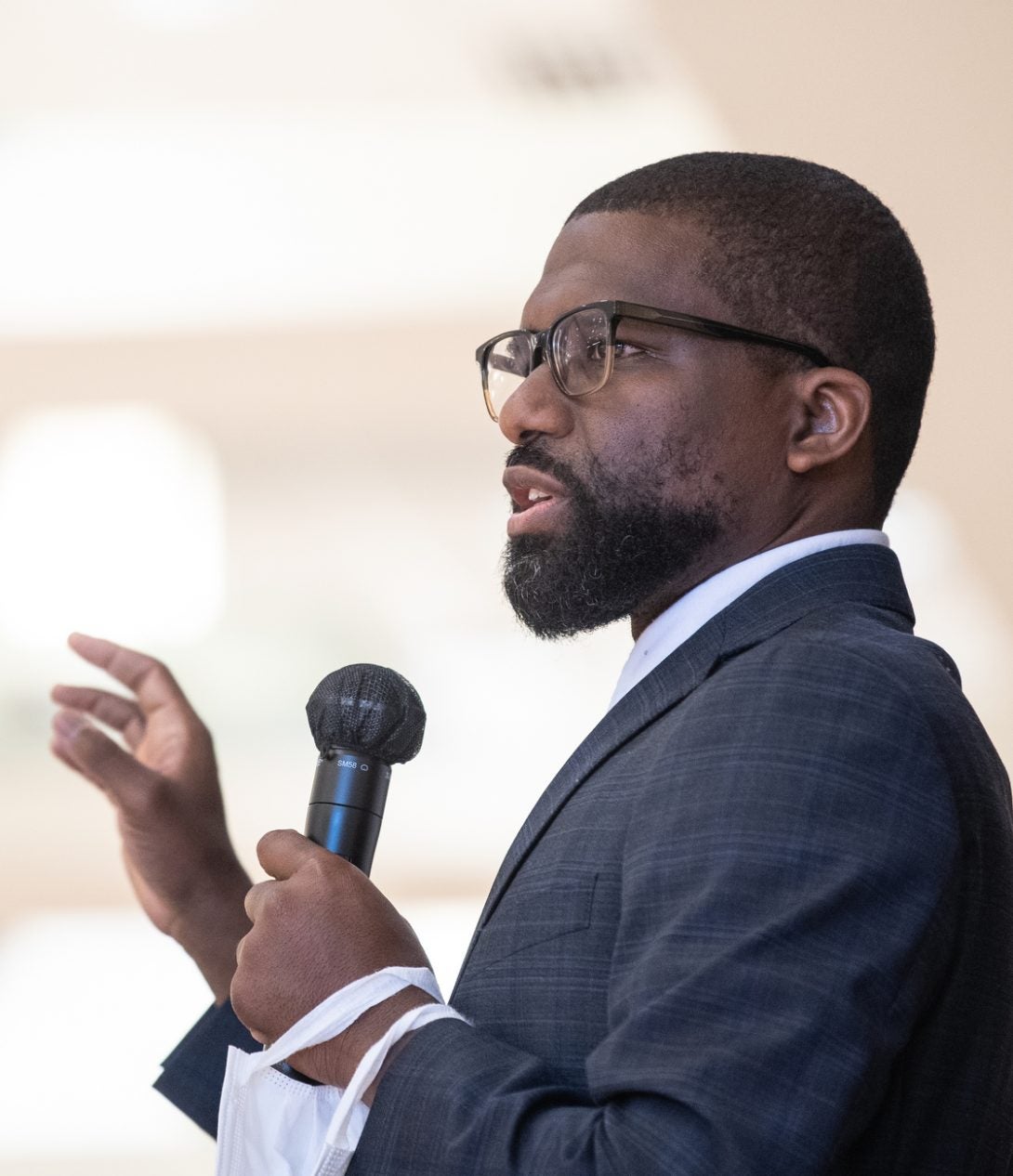DuSable Scholars Program aims to increase number of students of color in STEM

x
The DuSable Scholars Program identifies and supports talented Black and Latino students, who are often underrepresented in STEM fields, to help them graduate on time in a STEM major at UIC and encourages their matriculation to a research-based STEM graduate program, according to Jeremiah Abiade, director of the program.
The first cohort of the program consists of 19 first-year students who will receive housing as well as food and research stipends. Tuition for these students is being paid for through scholarships and fellowships.
The program is partnering with the DuSable Museum of African American History, said Abiade, associate professor of mechanical and industrial engineering in the UIC College of Engineering.
The program is named after Jean-Baptiste Pointe DuSable, a Haitian-born Black trader who was the first permanent, non-indigenous settler in the area and the recognized founder of Chicago, Abiade told students at a recent program orientation.
“The name that we chose for our program, DuSable, was intentional because we want to root this program in the local community of Chicago, and we want to connect this program to the legacy of people who are not often represented in STEM programs at UIC,” Abiade said, adding that for much of his career, he was the only Black tenure-track professor in engineering.
x

- Academic excellence through collaboration
- Service to community
- Involvement of family/support networks
- Scientific literacy
- Research immersion
- Financial support
- Guidance to research-based STEM graduate degrees
- Shared celebration of successes and overcoming of challenges
The aim of the four-year program is to help students achieve their academic goals by helping them maintain high academic achievement and provide the research experiences in Chicago’s only public research university that would make them competitive and give them the tools and experience to go on to post-graduate work, including Ph.D. programs.
Associate Chancellor and Vice Provost for Diversity Amalia Pallares, who oversees the program as the chief diversity officer on campus, said the program serves to enhance her mission to make the campus even more diverse, equitable and inclusive.
“When people ask me, ‘What is your goal for UIC?’ I say, ‘My goal is for everyone who comes here to be able to reach their potential,’” Pallares said.
Joshua Nwonye, a freshman studying biochemistry in the College of Liberal Arts and Sciences who graduated from Hinsdale South High School, said what attracted him initially to the program was the scholarship assistance he will be receiving during his four years at UIC. But he said the final selling point for him was the camaraderie that the program will instill.
“I think it’s going to be really cool to be in touch with other students studying sciences with me and I think it’s going to be great because we can learn together, grow together and be successful people in the future,” Nwonye said.
When Blossom Egbuonu, an Oswego East grad who is a freshman in biochemistry, first heard about the program, what caught her attention was the community she would be part of.
“It’s nice to have a community of people who are thinking in the same direction as you are as far as a field of study,” Egbuonu said. “Knowing people who are also going through the same thing as you and having amazing mentors who can also help you along the way and advise you, it’s nice that you have that.”
Kaliah Linear, a freshman studying mechanical engineering in the College of Engineering from Roseville, Minnesota, said what also solidified her decision to attend UIC and move to Chicago was knowing that program mentors include both people of color and women — two groups that are underrepresented in STEM fields.
“I liked the support aspect of it, knowing that if I come to a big city like Chicago, I’ll have support from professionals within STEM who look like me making sure that I’m staying in STEM and keeping me encouraged,” Linear said.
Shaun Shannon, who graduated from the Sarah E. Goode STEM Academy in Chicago, said what he liked about the program was how it partners with organizations like the DuSable museum and other campus organizations, such as the CHANCE program, the African American Academic Network, the Center for Student Involvement, and the African American Cultural Center.
“I didn’t know I would be involved with all of the joint organizations this early,” said Shannon, a freshman studying computer science in the College of Engineering. “What stood out to me with the DuSable Scholars Program was that I would be able to meet with a bunch of people like me and be able to connect with them.”
Scholars will participate in curricular and extracurricular activities organized by associate directors Miquel Gonzalez-Meler (biological sciences) and Carmen Lilley (mechanical and industrial engineering) in coordination with Erin O’Leary (director, Center for Advancement of Teaching Excellence), Bernard Santarsiero (pharmaceutical sciences), Sue Farruggia (Student Affairs) and Carol Fendt (Learning Sciences Research Institute). Aisha El-Amin (Office of Diversity) will coordinate the parent and community engagement for student support.